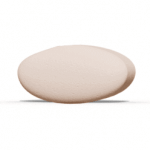Anti Viral
Review for Anti Viral in General
When the flu kicks in, you can’t wait to get back on your feet. But, when the hot teas and chicken soups don’t do the trick, that’s when you need option no. 2 – Antiviral meds. Antiviral drugs are meant to give your body a kick in the right direction.
These products reduce the duration of the viral infection and curb its symptoms. They also decrease the possibility of spreading viruses that trigger HIV and herpes. Of course, whether you use the medicine or not, the body will eventually topple the flu and get back to normal.
But, antivirals make the whole ordeal go a lot smoother. If you want to know the ins and outs of antiviral medicine, then you are in the right place. We prepared a quick guideline that will answer all your queries.
Antiviral Medicine – How Does It Work?
Did you know: An antiviral med Veklury (remdesivir) is an FDA-approved medicine for treating COVID-19 in adults and children over 12. This is the only approved medicine, although countless are being tested.
Antiviral drugs are designed to make it downright impossible for the virus to replicate. Since they put a lid on replication, novel viruses won’t spawn, allowing the body to obtain the capability to protect other cells from infecting and invading viruses.
In other words, the virus won’t overwhelm the system, allowing you to feel better sooner. Even if you still have the flu symptoms, they can be less severe. The FDA has approved two antivirals for getting you back in shape if you have the flu. These are:
- Relenza (Zanamivir)
- Tamiflu (Oseltamivir phosphate)
Other older products that are also approved are:
- Flumadine (rimantadine hydrochloride/rimantadine)
- Symmetrel (Amantadine hydrochloride)
However, the older versions only treat the primary flu virus. Currently, a lot of flu strains are resistant to these older products, which is why doctors often recommend newer alternatives. The maximum daily dosage will depend on the product you are taking and what are you using it for.
For example, the recommended dose of Relenza in adolescents and adults with influenza is 10 mg/ 2 times a day for 5 days. Whereas with Tamiflu, the maximum daily dosage for influenza is 75 mg/ 2 times a day) for a span of 5 days.
The treatment could last anywhere from 1 to 14 days depending on the ailment you are dealing with and your current health state. Consult a doctor to find the right dosage and treatment plan.
Any Adverse Effects to Know About?
Yes, side effects can happen. Such as fatigue, dizziness, headaches, insomnia, diarrhea, joint or muscle pain. These adverse reactions will depend on the dosage and type of drug you are taking. Some users also experience cough, dry mouth, and skin rash.
So, who shouldn’t be taking antiviral meds, you might ask? Some products are not meant to be used in children or in adults with severe breathing troubles. Particularly COPD (chronic obstructive pulmonary disease) and asthma. Your doctor can prescribe the best course of action for your ailment. With the proper treatment, you can always stay on the right track.






